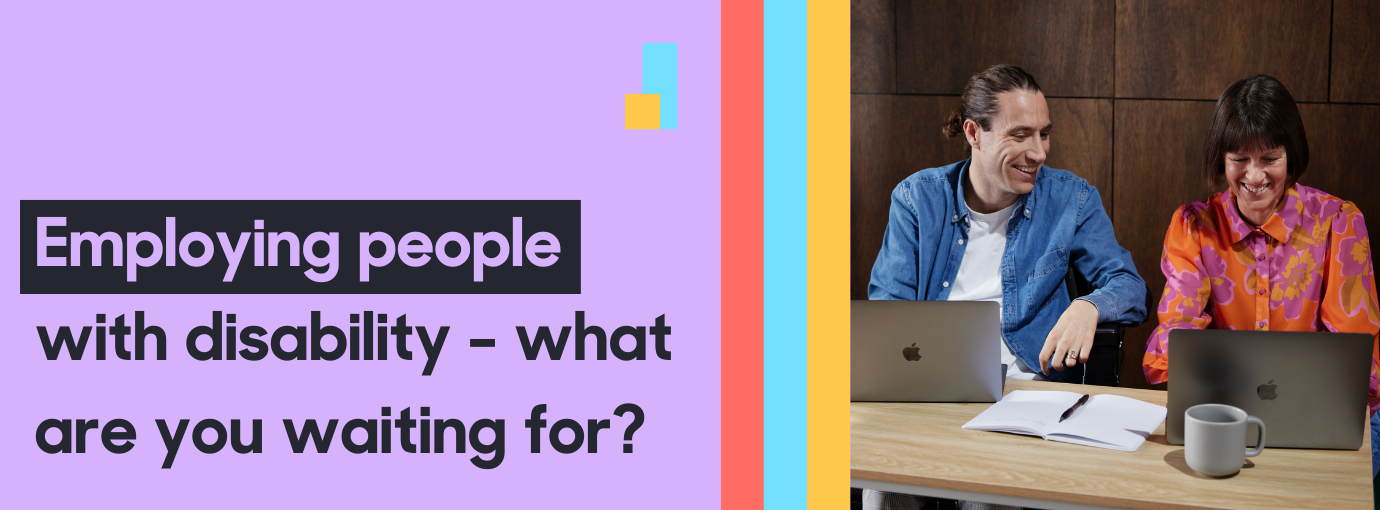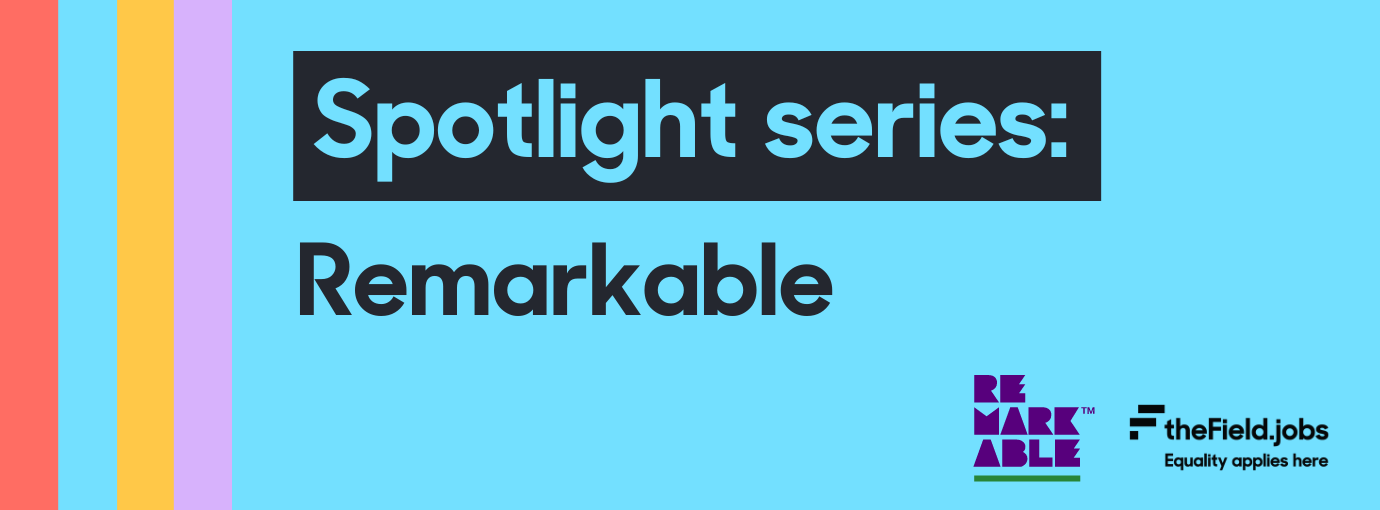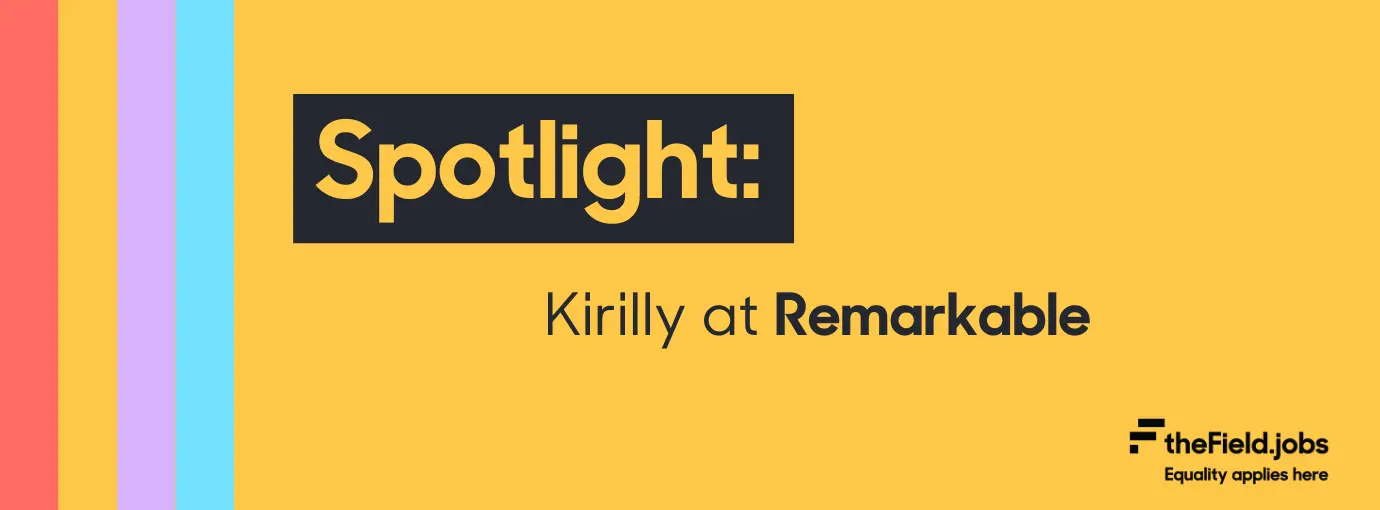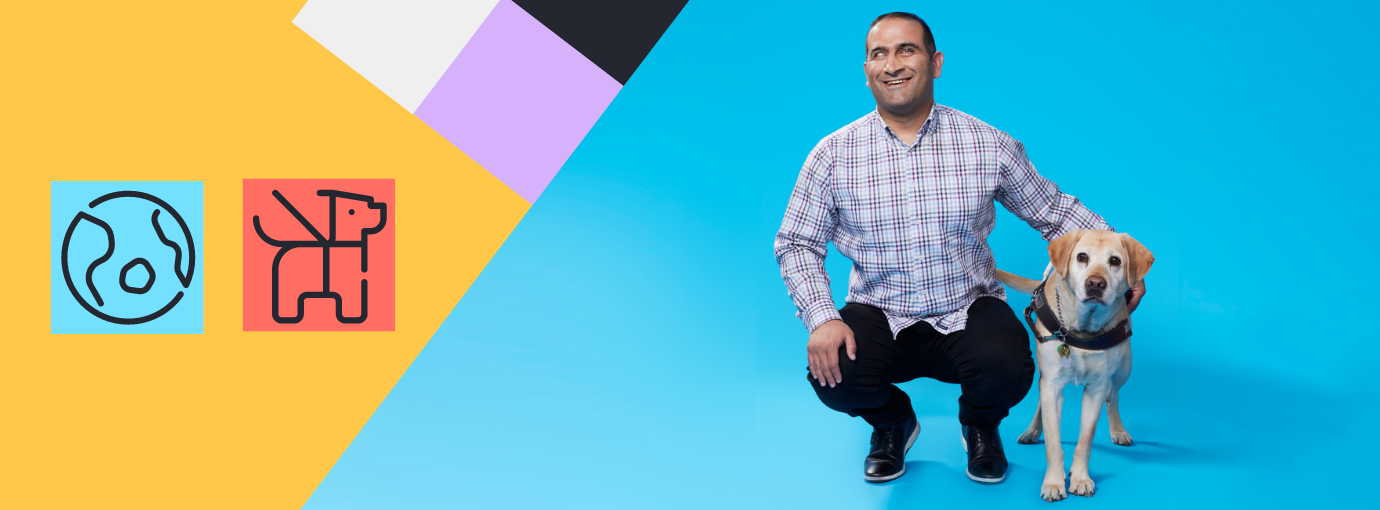People with disability have a lot of skills and lived experiences that will be an asset to any organisation or business. But if you’ve never worked with people with disability before, you might be a little unsure about hiring someone with access needs.
Maybe you want to hire people with disability, but you’re worried about getting it wrong, or making a mistake. And maybe that fear means that despite the benefits of a more inclusive workplace, you don’t look into disability inclusion at all.
But one in five Australians have a disability, and chances are, you might already have people with disability in your workplace and just not know it. Especially because disability can often be non-visible and dynamic.
Everyone deserves to be able to get a job and build a career. But people with disability experience a lot of barriers in the workplace, so it’s important to break down these barriers. And at The Field, we’re here to help you with four ways you can make your workplace better for employees with disability.
Learn about disability
Stigma and ableism are some of the biggest barriers people with disability face. They worry: will their access needs be met? Will they feel safe and welcomed? Sometimes, these fears mean people won’t apply for a position at all. Only 53% of Australians with disability have a job, compared to 83% of Australians without disability— that’s why employer education is so important. Because the best way to dispel stigma and ableism is to learn about disability—and the diversity that can exist within the disability community.
There are many different kinds of disability, including mental, physical, sensory and intellectual, and many people can have more than one disability.
A great way to learn more about disability is to search for disability advocates online. Follow their work, become familiar with issues facing people with disability in the workplace, and make sure you look at a diverse range of experiences. It’s also important to encourage staff to do the same. Disability is so underrepresented in the workplace—and in society as a whole—so simply learning can be such a powerful first step.
Learn about reasonable adjustments and improve inclusion policies
So, now you know more about disability, it’s important to also know about what reasonable adjustments someone might ask for. Sometimes, the solution might be easier than you think—like moving some furniture around so a wheelchair user can navigate the office. A lot of adjustments can be cheap and easy—and you can even access government supports to help with cost.
Most of the time, it’s just about being willing to listen to someone, and work out together how they can work best.
Sometimes it takes trial and error—and the person with disability might not know what they need either, especially if they’ve never had an employer willing to make adjustments.
Some reasonable adjustments could include:
- Allowing additional time for interviews or job tasks
- Ensuring content and materials are accessible for those who need them (e.g. Easy English, braille, screen-reader friendly)
- Allowing flexible hours, work-from-home and part-time positions
- Having a quiet sensory space
- Ensuring job advertisements contain information about reasonable adjustments
- Encouraging people to communicate however works best for them (e.g. via written communication or assistive technology)
While it may seem daunting, accessibility benefits everybody, and even small changes can make a huge difference. If you’re not sure, IncludeAbility has an excellent guide on customising jobs for people with disability.
Improving your hiring practices and policies can also have a huge impact. Make sure you have a Disability Action Plan, and other relevant policies. Use respectful, inclusive language—if you need help, The Field has a great tool to help ensure your language is inclusive. Ensure any events are accessible. Provide disability awareness training, especially to managers.
Everyone’s access needs are different, so don’t just assume: ask. And make sure you create a work environment that feels safe and supportive. We have a great blog on accessible workplaces here.
Recognise the value of lived experience
Lived experience is invaluable—and when it comes to disability, people with disability are experts in a way that no one else is. While this lived experience is a huge benefit for anyone working in the health or disability space, lived experience can make a huge difference to any workplace. Dealing with near-constant barriers in everyday life, people with disability are often excellent at problem-solving, out-of-the-box thinking and adapting. Hiring people who are neurodivergent is also a huge asset: because what could be better than different brains working together?
According to the National Disability Service, people with disability are also four times more likely to stay with their employer if their access needs are met—so hiring a person with disability can also be great for saving on recruitment costs, as well as giving someone an opportunity to thrive in a world filled with barriers. And that diversity brings huge benefits: diverse workplaces are 10 times more likely to be effective. Not only that, but accessibility and flexibility benefits everybody.
Get support from disability organisations and services
If you’re new to the disability space, learning about everything can be a bit overwhelming—especially if you want to make sure you’re doing the right thing for any employees with disability. The good news is you’re not alone—there are plenty of organisations who can help, whether it’s by training, consultancy, resources or direct support.
Like:
- Australian Network on Disability is a great place to find out more about disability employment
- Youth Disability Advocacy Service has some fantastic resources and free training for those working with young people with disabilities
- Women With Disabilities Victoria’s Experts by Experience Group offers consultancy and advice from experts with disabilities
- Vision Australia offers a free digital accessibility course
- Children and Young People with Disability Australia’s DREAM Network has employer resources
- Job Access has free expert support, advice, information and training
- Get Skilled Access can provide disability consultancy and support
- Getting in touch with Disability Employment Service Providers
Zoe Simmons is a disabled journalist, copywriter, speaker, author and advocate. She writes to make the world a better place. You can find out more about Zoe on her website, or follow her on Facebook, Instagram, Twitter, LinkedIn or Tik Tok.



